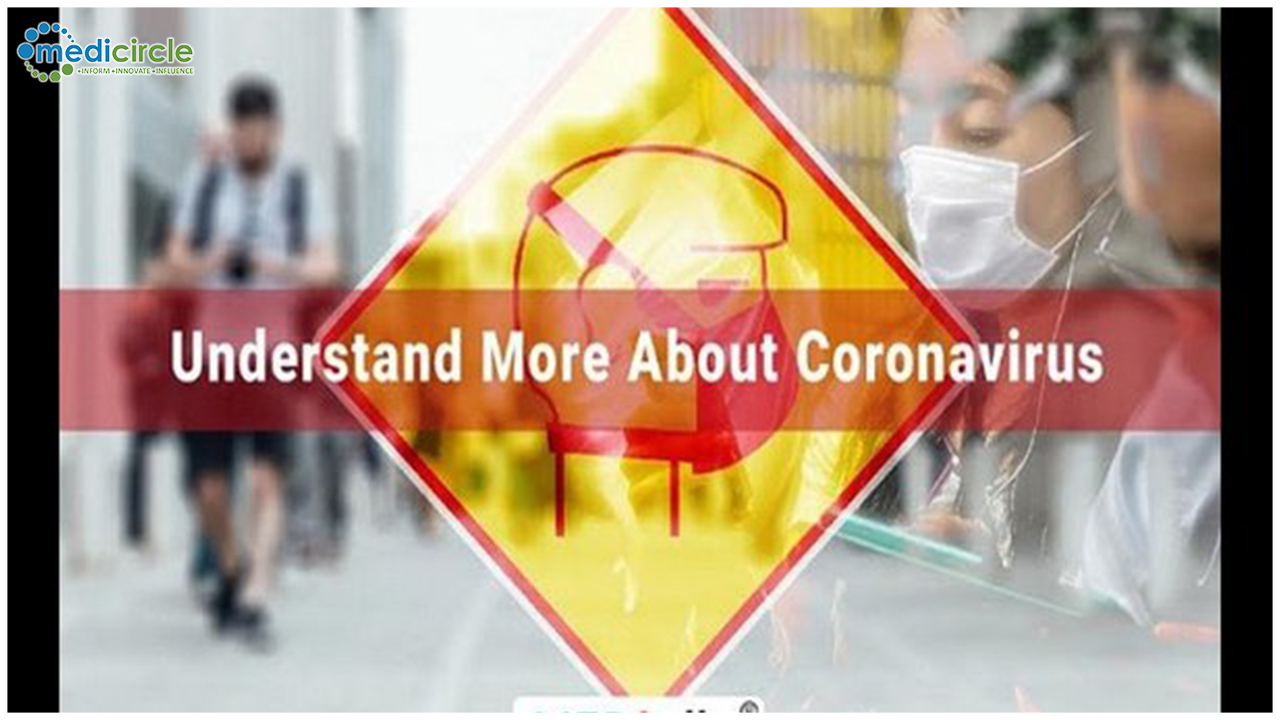Estimates indicate that there have been 3 confirmed Coronavirus cases in India so far and more than 1,700 people tested around the country. Even as the death toll in Wuhan China - the place of origin of the infection - keeps increasing, the city is on a shutdown. There is a need to raise awareness around the condition and dispel myths. Online learning and patient education platforms such as MedTalks can enable people to clear their doubts around the condition.
Coronavirus apparently emerged from illegally traded wildlife (bats and snakes) at a seafood market in Wuhan and is known to spread through human to human contact. The name ‘coronavirus’ is derived from its shape, resembling a crown or solar corona when seen under an electron microscope.
Speaking about this, Dr. KK Aggarwal, President CMAAO, HCFI and Past National President IMA, said, “Every decade, a zoonotic coronavirus crosses species that infect humans and in this decade, we have a virus, called 2019-nCoV, first identified in Wuhan, China, in persons exposed to a seafood market. Infection with these coronaviruses is associated with a severe inflammatory response. The severity of illness is a cause for concern. The infection has been traced to snakes in China, so, it is unlikely to spread in India by eating seafood. SARS-CoV and MERS-CoV affect intrapulmonary epithelial cells more than upper airway cells. Transmission thus occurs from patients with recognized illness and not from patients with mild, nonspecific signs. 2019-nCoV seems to use the same cellular receptor as SARS-CoV (human angiotensin-converting enzyme 2 [hACE2]). Transmission thus seems to occur only after signs of lower respiratory tract disease develop.”
Adding further, Nilesh Aggarwal, CEO at IJCP Group & MedTalks, said, “We at MedTalks are very concerned about this global potential epidemic and have created a special section on our platform on Coronavirus that answers all questions related to the condition and gives tips on prevention, treatment and management. This is available in multiple languages for the masses. We have also created a free course for doctors and other healthcare practitioners to update their knowledge."
Awareness, precaution, and timely diagnosis are key to averting complications. There is no specific treatment or vaccine for the virus. However, in case there is an indication of fever, cold, cough, breathing problems, or other flu like symptoms including severe acute respiratory syndrome (SARS), it is imperative to seek assistance immediately. This is because when left unchecked, and in severe cases, the virus can cause organ failure. One must also ensure that they do not come into close contact with anyone coming from outside the country, especially China given that it can spread through droplets. There is currently no treatment or vaccine for coronavirus and therefore, precaution is key. Some general precautions include regular washing of hands, covering the mouth and nose while sneezing and thoroughly cooking meat and eggs.

 Medtalks is a leading education platform for all healthcare stakeholders including doctors, patients, allied healthcare workers and others.
Medtalks is a leading education platform for all healthcare stakeholders including doctors, patients, allied healthcare workers and others. 










.jpeg)


.jpeg)
.jpeg)
.jpeg)
_(1).jpeg)

_(1)_(1)_(1).jpeg)
.jpeg)
.jpeg)
.jpeg)








.jpeg)
.jpeg)